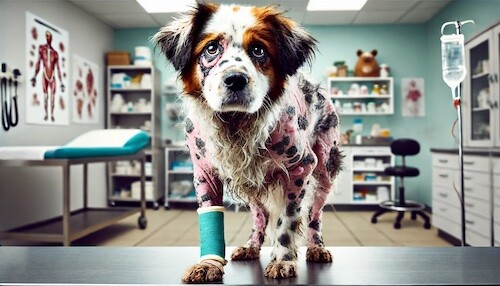The 10 Dog Breeds With The Most Health Problems

Dogs are cherished for their unwavering loyalty and affection, but it’s important to recognize that some breeds are more susceptible to health issues than others. These problems can range from dental issues to hip dysplasia, and understanding which breeds are at higher risk can be crucial for any prospective pet owner. Being informed about these potential health concerns helps you make better decisions and ensures you can provide the best possible care for your canine companion.
Read More: 15 Dog Breeds With The Highest Cancer Rates
Selecting a dog breed should involve considering not just their temperament and activity level but also their predisposition to certain health conditions. Awareness of these issues allows for proactive health management, such as regular veterinary check-ups, proper nutrition, and tailored exercise routines. This approach can significantly enhance the quality of life and longevity of your pet.
In this guide, we delve into the dog breeds that are known to have the most health problems. By understanding these issues, you can be better prepared to meet the specific health needs of your chosen breed, ensuring a happier and healthier life for your furry friend. Here are the 10 dog breeds with the most health problems, along with tips on how to manage their care effectively.
3Bulldog

Bulldogs are strong and muscular, known for their distinctive appearance with a wide, flat head and large eyes. However, this unique structure makes them prone to several health issues. Their large eyes can lead to frequent infections if not properly cared for, while their skin folds are susceptible to infections if not cleaned regularly. Bulldogs also face significant breathing difficulties due to their brachycephalic (short-snouted) nature, making them prone to overheating and exercise intolerance, especially in hot weather.
Hip dysplasia is another common issue in Bulldogs, causing abnormal rubbing of the hip bones and leading to pain and mobility issues. Maintaining a healthy weight and providing regular exercise tailored to their limitations can help mitigate some of these problems. A balanced diet and avoiding overfeeding are crucial to prevent obesity, which can exacerbate hip dysplasia and other health conditions.
Regular veterinary check-ups are essential for early detection and management of potential health issues. Vaccinations, dental care, and routine health screenings can catch problems before they become severe. For Bulldogs, it’s also important to monitor their breathing and seek immediate veterinary care if they show signs of distress, such as excessive panting or difficulty breathing.
Providing a cool, comfortable environment and avoiding strenuous activities during hot weather can help prevent heatstroke. Proper grooming, including regular cleaning of their skin folds and monitoring their eyes, is vital to prevent infections. By understanding the specific health needs of Bulldogs and providing diligent care, owners can ensure their pets lead comfortable, healthy lives despite their predispositions.
